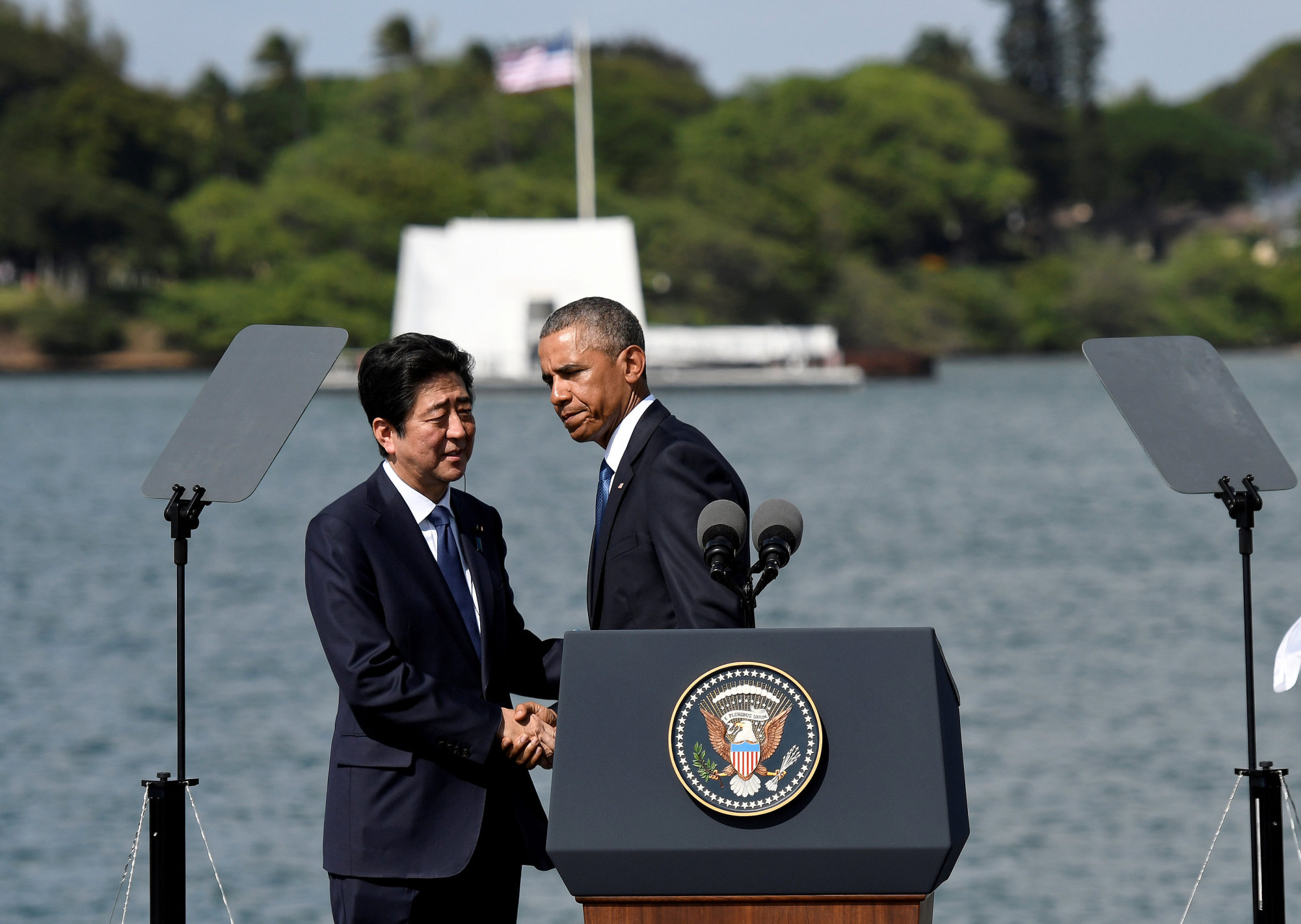Prime Minister Shinzo Abe's historic visit to Pearl Harbor wrapped up Tuesday with addresses from the Japanese leader and U.S. President Barack Obama on the power of reconciliation and its ability to transform once-hated enemies into close friends and strategic partners.
Seventy five years after the "day of infamy," on Dec. 7, 1941, when Japan attacked U.S. forces at Pearl Harbor, Abe and Obama recalled the past but also focused on the importance of the present postwar U.S.-Japan strategic alliance. Abe's visit and meeting with Obama, who leaves office in less than a month, was an attempt to gird the legacies of both leaders in the Asia-Pacific region in the face of uncertainties surrounding the fate of bilateral relations under President-elect Donald Trump.
In a meeting between the two leaders, Abe thanked Obama for his efforts to work with Japan on a number of issues ranging from dealing with North Korea's nuclear program to his support for the Trans-Pacific Partnership free trade agreement, despite opposition by congress and large portions of the American public, as well as Trump, who has announced he will cancel the TPP on his first day in office.



